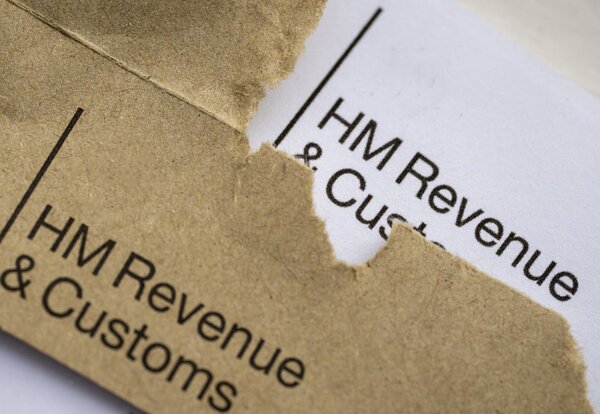
The UK tax authority is sharpening its focus on individuals and businesses who fall foul of self-assessment tax obligations. HM Revenue and Customs (HMRC) has issued a stern reminder to taxpayers: late submissions and incorrect tax returns will no longer go unnoticed.
As part of a wider compliance drive, the department has begun ramping up scrutiny of self-assessment returns, with a renewed emphasis on chasing missing payments and penalising inaccuracies.
This move comes as HMRC aims to close the tax gap and ensure that all taxpayers contribute their fair share. It’s a clear signal that those who miss deadlines or misreport income could face financial penalties, interest charges, or further investigations. With the self-assessment deadline of 31 January already passed for the 2023–24 tax year, late filers and those yet to correct errors may find themselves on HMRC’s radar.
Why HMRC Is Turning Up the Heat
HMRC’s latest compliance campaign follows years of growing concern about underreported income and delayed tax payments. With billions in uncollected taxes each year, the government is intensifying efforts to reduce the so called “tax gap” the difference between taxes owed and taxes collected.
By tightening enforcement on self-assessment filings, HMRC hopes to improve tax revenue collection without raising rates. Officials believe that increasing the perceived risk of being caught will encourage more accurate and timely submissions. This proactive approach is being supported by data-driven investigations and increased use of digital tools to flag discrepancies in real time.
What This Means for Taxpayers
For those submitting self-assessment tax returns, this development means greater accountability and higher stakes. Even small mistakes, such as omitted freelance income, incorrect expense claims, or using the wrong tax code, could trigger an HMRC enquiry.
Taxpayers are advised to review their filings thoroughly, especially if they completed their returns without professional help. Common errors flagged by HMRC include forgetting to report income from side hustles, rental properties, or overseas earnings. Failure to correct mistakes could result in penalties of up to 30% of the unpaid tax, plus interest.
The Self-Assessment Deadline and What Happens After
The self-assessment deadline for the 2023–24 tax year was 31 January 2025. Anyone who filed late may already have incurred a £100 penalty, with additional charges kicking in the longer the return remains outstanding. After three months, daily penalties of £10 can apply, and after six months, the fine increases to 5% of the tax due or £300, whichever is higher.
HMRC has also warned that submitting a return but failing to pay the associated tax can lead to separate late payment penalties. These are charged at 5% of the unpaid tax at 30 days, 6 months, and 12 months after the payment deadline

HMRC’s Approach: Combining Tech and Tougher Tactics
Technology plays a growing role in HMRC’s compliance activities. The department increasingly relies on real-time data from banks, employers, and other institutions to cross-check returns for inconsistencies. Sophisticated algorithms now help flag suspicious activity, such as sudden spikes in income or missing data.
This modernised approach means HMRC can identify potential non-compliance faster and with greater accuracy. However, it also raises the bar for taxpayers, particularly those with complex income streams, to ensure they’re submitting error-free returns.
Expert Advice: Double-Check Before You Click ‘Submit’
Tax professionals are echoing HMRC’s message. "We’re seeing more clients caught out by seemingly minor oversights," says Rebecca Jenkins, a tax consultant based in Manchester. "It’s vital to cross-check figures and keep thorough records, especially if you’re juggling multiple income sources."
Experts advise reviewing tax returns carefully or using a qualified accountant to avoid costly errors. They also recommend keeping digital copies of receipts and maintaining up-to-date bookkeeping throughout the year. As the crackdown continues, being organised is no longer just good practice, it’s essential.
Who Is Most at Risk?
While HMRC’s compliance push affects all self-assessment taxpayers, certain groups are more likely to face closer scrutiny. These include freelancers and gig economy workers, landlords with rental income, investors with capital gains or dividend income, and self-employed individuals with fluctuating earnings.
Those with overseas income or involved in cryptocurrency trading are also firmly on HMRC’s radar. Even taxpayers who have no intention of deceiving HMRC could still face penalties if they fail to accurately declare all sources of income.

Fun Fact
Did you know HMRC receives some of the most unusual excuses for missing the self-assessment deadline? In previous years, reasons have included “my mother-in-law is a witch and put a curse on me” and “I couldn’t file my return on time as my pet goldfish was sick.”
While amusing, HMRC confirms these excuses won’t get you off the hook. Genuine reasons like hospital stays or serious illness may be accepted, but whimsical tales are swiftly rejected.
Conclusion
HMRC’s message is clear: accurate, on-time self-assessment tax returns are not optional. With advanced technology and a sharper focus on compliance, the tax authority is moving swiftly to identify and penalise late or incorrect submissions. This increased scrutiny isn’t just about collecting penalties, it’s part of a broader effort to ensure fairness and close the tax gap.
For taxpayers, especially the self-employed and those with diverse income streams, now is the time to double-check past returns and put better processes in place for the future. Mistakes, however innocent, could come with a hefty price tag. By prioritising accuracy, seeking professional support when needed, and maintaining clear records, individuals can stay on the right side of HMRC and avoid unnecessary stress.
Frequently Asked Questions
What is the deadline for self-assessment tax returns?
The deadline to file self-assessment tax returns online is 31 January each year following the end of the tax year.
What happens if I file my tax return late?
ou will receive a £100 fine immediately after the deadline. Additional penalties apply at 3, 6, and 12 months, along with daily fines.
Can I appeal a penalty from HMRC?
Yes, if you have a reasonable excuse such as serious illness, you can appeal. HMRC considers appeals on a case-by-case basis.
What are common mistakes on tax returns?
Missing income sources, incorrect expense claims, and typos in figures are frequent errors. These can all lead to penalties or enquiries.
How can I avoid penalties in the future?
Stay organised, keep accurate records, file on time, and consider using an accountant to review your return before submission.











